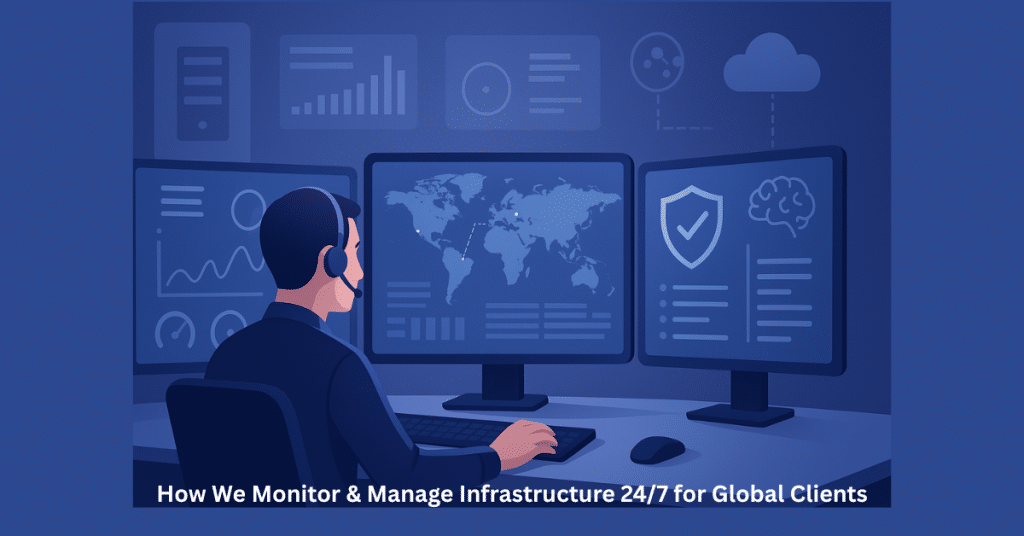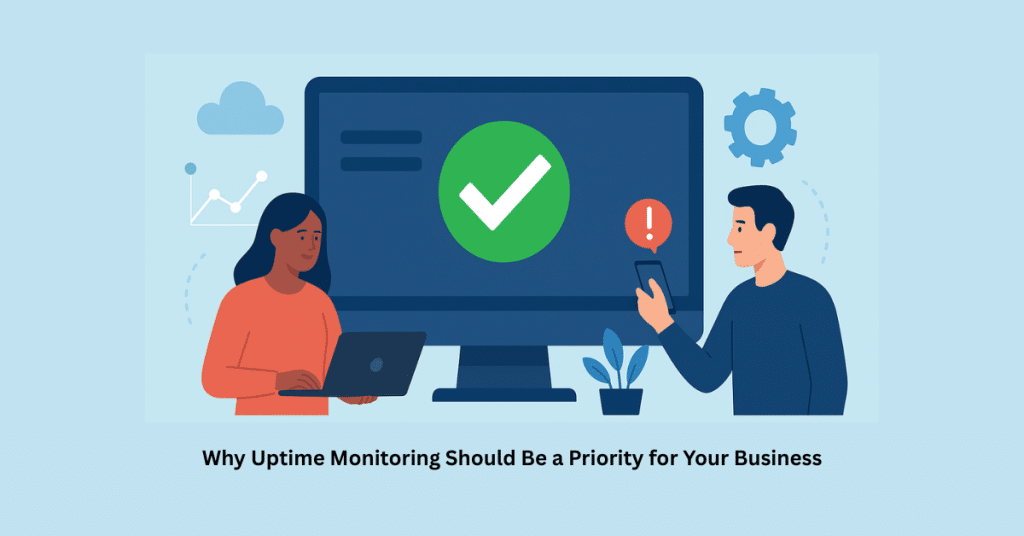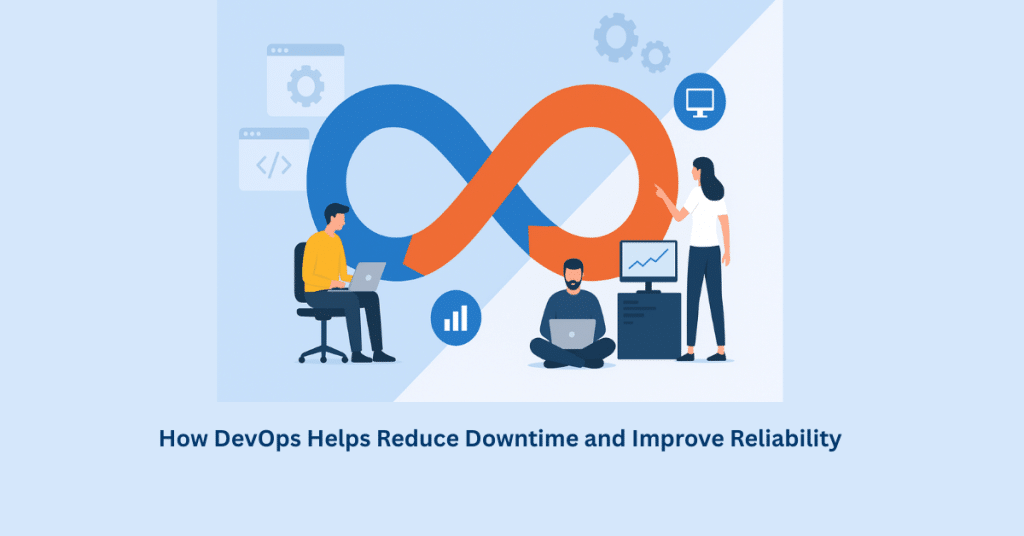Software development these days isn’t simply a matter of writing code. It’s delivering top-notch products, quicker and more dependably than previously. Yet, creating fantastic software at pace has its drawback — fractured builds, slowed-down releases, buggy releases, agitated teams, and discontented customers.
Here step in DevOps partners:
They narrow the gap between development and operation, enabling software firms to streamline their processes, automate trivial tasks, and concentrate on innovation and not firefighting.
In this article, we will discuss why software development firms require DevOps partners, how they help create value, and what one should look for in the appropriate partner.
What Is DevOps, Really?
Before discussing the partnership aspect, let’s take a quick recap of what DevOps really is.
DevOps is a combination of “development” and “operations.” It’s not an individual or a tool — it’s a culture and a collection of practices that unite developers, operations teams, and QA engineers. The objective? Software delivery in a faster manner, collaboration, continuous improvement, and lower risk.
Essential elements of DevOps are:
- Continuous Integration and Continuous Delivery (CI/CD)
- Infrastructure as Code (IaC)
- Automated testing and deployment
- Real-time monitoring and feedback loops
- Strong collaboration and communication
For most software firms, developing and sustaining these capabilities in-house is time-consuming, labor-intensive, and usually sidetracks them from their primary objective: product development.
The Evolving Needs of Software Development:
Let’s face it: the demands on software firms are never greater.
Customers expect immediate release cycles, real-time updates, zero downtime, bulletproof security, and immediate support. Meanwhile, developers expect environments that allow for experimentation and rapid changes, without disrupting production systems.
Handling this balance by hand — or with siloed teams — becomes infeasible quickly.
Which is why increasingly companies are opting to collaborate with DevOps partners who can construct the appropriate foundations, systems, and processes to maintain their pipelines streamlined, scalable, and secure.
7 Reasons Why Software Development Firms Require DevOps Partners
1. Faster Time to Market:
Speed is software’s name of the game. The quicker you ship, the better your competitive position.
DevOps partners introduce automated CI/CD pipelines that can dramatically shorten the duration of code movements from development to production. Those weeks-long features are now live in a matter of days — sometimes hours.
It does more than save time; it strengthens your capacity to act on market feedback in short order.
2. Expertise You Can Trust:
DevOps is a niche space. From Kubernetes to Jenkins, Terraform to Ansible — it’s difficult to keep pace with the constantly changing stack of tools and best practices.
Having a DevOps partner puts you in touch with certified experts who breathe infrastructure, automation, and cloud-native architectures. They know what works and what doesn’t — and will help you steer clear of expensive trial-and-error errors.
Consider them your backstage team, keeping the spotlight on your development team and your product.
3. Increased Stability and Reduced Downtimes:
It’s wonderful to release quickly — but only if stability is not compromised.
DevOps partners create resilient systems that support high traffic loads, scale up and down when needed, failback from outages, and self-repair. They have rigorous testing and monitoring configurations that identify issues before users do.
The payoff? Stable apps, smiling users, and a clear conscience.
4. Better Collaboration and Communication
Perhaps the most underrated benefit of DevOps is the cultural change it introduces. It eliminates the “us versus them” culture between developers and operations.
A great DevOps partner assists you in creating a culture of collaboration where teams collaborate rather than blaming. They bring in collective dashboards, concerted workflows, and open communication that instills transparency and accountability.
5. Scalability Without the Chaos:
Onboarding new clients or bringing in new features shouldn’t be stressful. Scalability should be smooth.
DevOps partners assist you in designing cloud infrastructure and CI/CD pipelines that scale without a requirement for human intervention. They create systems that operate in both the calm and the storm with minimal external intervention.
It is particularly crucial for startups or SaaS businesses anticipating high growth.
6. Cost Savings Through Automation
Automating environment management, configurations, and deployments isn’t just inefficient — it’s costly.
DevOps collaborators automate infrastructure provisioning to app deployment. This eliminates the need for huge ops teams, reduces the chance of human error, and decreases long-term maintenance costs.
More automation = more dollars saved.
7. Security at Every Step:
Security is no longer an afterthought — it’s a priority.
With DevSecOps practices, DevOps partners integrate security right into your CI/CD pipelines. They implement automated vulnerability scans, secret management, compliance checks, and role-based access controls — without slowing down your delivery.
This proactive approach to security protects your clients, your brand, and your bottom line.
What to Look for in a DevOps Partner:
Not all DevOps partners are created equal. Here are a few qualities to consider when evaluating one:
- Proven track record: Search for case studies, references, or testimonials from similar companies.
- Toolchain expertise: They should be proficient in the tools your team is using — and willing to enhance your stack.
- Cloud-native knowledge: They should feel at home with AWS, Azure, Google Cloud, or whatever platform you’re on.
- Customization capability: No one-size-fits-all solution. Your projects are all unique; your DevOps solution should be as well.
- Commitment to teamwork: They must be an extension of your team, not a standalone vendor.
- Help and availability: Things can always go wrong. Select a partner with solid, 24/7 support.
Common DevOps Partnership Myths:
Let’s debunk a few myths:
- We don’t need DevOps — we’re a small team.
Startups too can greatly benefit from having automation and reliable CI/CD processes early on. Actually, it saves you technical debt as you scale.
- DevOps is all about tools.
Tools are part of the picture, but the substance is the practices, culture, and attitude that DevOps provides.
- We can just get an in-house DevOps engineer instead.
You can, but it is difficult to find one individual who can touch on all areas of DevOps — cloud, security, CI/CD, automation, monitoring, and more. A DevOps partner provides a team of experts.
Real-World Success Stories:
Most leading software companies are credited to their reliability and speed owing to robust DevOps practices.
- A fintech company cut deployment time from 3 hours to 10 minutes, with assistance from a DevOps partner.
- An ed-tech firm scaled from 1,000 to 100,000 users without any downtime, powered by automated infrastructure.
- A legacy enterprise moved to Kubernetes and achieved a 40% boost in delivery speed.
Standing behind every one of these triumphs was a committed DevOps team that were in harmony with development.
Last Thoughts: Future-Proof Your Software Business
Whatever you are — a startup, a SaaS business, a large-scale enterprise — collaborating with a DevOps partner is no longer a luxury but an imperative.
They deliver the automation, scalability, stability, and speed you require to compete in a rapidly evolving market. More importantly, they unshackle your internal teams from doing what they do best — they enable them to focus on what they are great at — creating superior software.
Ready to drive growth, minimize risk, and ship superior products quicker? It’s time to invest in the optimal DevOps partnership.
Looking for a DevOps partner to support your development journey?
At Geeks Solutions, we don’t just implement pipelines — we provide end-to-end DevOps services tailored to your business needs. We take time to understand your challenges and goals, and we build strong bridges between your people, processes, and platforms to drive real transformation.



